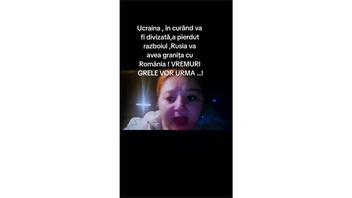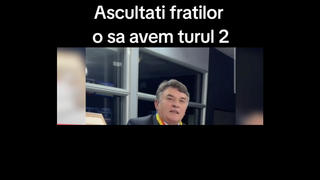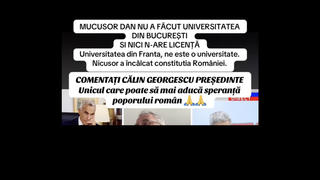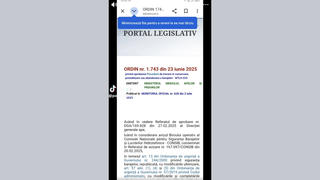
Are the new fiscal measures that entered into force in Romania on November 1, 2023 synonymous with the disappearance of cash and with banks accumulating more wealth than ever before in the history of humankind? No, that's not true: The measures specifically focus on cash transactions for business payments and invoices; they do not seek to ban people from having cash and banks have not just accumulated more wealth than ever before - they too are being taxed by the government.
The story originated from a video (archived here) published on TikTok by user @sosromania101 on November 7, 2023, with the caption (translated from Romanian to English by Lead Stories staff) "Ukraine will soon be divided, it lost the war, Russia will share a border with Romania! Hard times are coming!" The video opened:
When money becomes a number in a bank and nothing more, the only ones gaining anything are the banks. Banks have raised commissions right now. They are winning and dividing us. It is the greatest unjustified accumulation of wealth in the history of humankind.
This is what the post looked like on TikTok at the time of writing:

(Source: TikTok screenshot taken on Thu Nov 9 13:22:01 2023 UTC)
The individual featured in the video, Senator Diana Sosoaca of SOS Romania, is a recognized far-right politician known for endorsing various conspiracy theories regarding the pandemic, the war in Ukraine, and new legislation developments.
In this instance, she asserts that the recently implemented fiscal measures in Romania will result in the extinction of cash and the financial gain of banks, without providing a clear explanation of the process. These measures have already sparked various conspiracy theories, one of which suggests a continuous reduction in the allowable amount of cash an individual can possess, potentially affecting the elderly who may encounter difficulties receiving their pensions in cash.
Contrary to the claims, the legislation does not aim to prohibit the use of cash. One key aspect of the new legislative package involves placing limits on cash transactions and payments to curb tax evasion and money laundering. This specifically impacts business transactions and invoicing for services, rather than dictating the amount of cash an individual can retain or how the elderly receive their pensions. The primary goal is to diminish Romania's underground economy, which is estimated to constitute approximately 30% of the country's GDP.
These measures are also not designed to facilitate the enrichment of banks. While it's true that larger transactions may result in increased earnings from commissions, the legislation includes a provision to impose a 1% tax on all interest rates, commissions, and taxes for banks, starting from November 1, 2023. Despite rumors suggesting that Banca Transilvania (BT) might raise its commissions in response to the changes, the bank has chosen not to do so. There is no evidence indicating that Romanian banks, in general, have adjusted commissions or interest rates for individuals in response to these measures.
Lead Stories Romania has debunked similar conspiracy theories stemming from the new fiscal measures.













